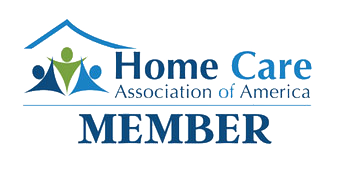Fairfield In-Home Senior Care
Seniors Helping Seniors®
Fairfield, West Chester, Hamilton, Mason, Cincinnati
Need Help?
Searching for a like-minded friend to help tackle chores and tasks? Do you seek a companion to join you in hobbies and activities? Our caregivers – seniors themselves – show up ready to exceed expectations – on a schedule that meets your needs, including overnight. See how we can help today!
Learn MoreWant to Help?
Make a difference by joining our Seniors Helping Seniors® caregiver family. Our teams consist of mature, compassionate adults, who thrive on assisting and connecting with other wonderful individuals. Earn money while building lasting friendships! Do good and make money®
Learn MoreAbout Seniors Helping Seniors®
Our in-home care services brighten the lives of seniors, who can benefit from a helping hand and a friendly smile. Our caregivers, who are seniors themselves, make your life easier through compassionate support, beautifully vibrant moments, and shared experiences.
As your personal caregivers, we relate to the opportunities and challenges of aging. Your days should be filled with ease and joy! That’s why our entire Fairfield team is committed to empowering seniors, helping them continue to live independent lives from the comfort of home. As your specific needs change, you can count on Seniors Helping Seniors® Fairfield to support you in ways you find most helpful.
We’re honored to have forged many friendships in this community through our day-to-day assistance and companionship. We can’t wait to connect with you!

Our Mission
Seniors Helping Seniors® in-home care services provides our seniors with the ability to choose an independent lifestyle in their own homes, for as long as possible, with the dignity and respect they deserve. We do this by matching them with loving, caring and compassionate active mature caregivers to provide their needed services.
Learn MoreAccolades / Awards / Memberships

"I was in great need when my husband was being released from the hospital and my ride fell through. I remembered their phone number and called them up and they took care of all the details, including calling up the case worker at the hospital to make sure my husband was going to be released on time. I felt at ease and they went above and beyond. Once they came out I did not need to worry anymore."
"My dependable and friendly Seniors Helping Seniors® caregiver provides transportation to my scheduled appointments as well as taking care of household errands. She enjoys cooking so we’ll often grocery shop together for her recipes. And now I indulge in the most delicious and nutritious meals right in my own home!"
"I live independently in my own home; I have also had a few lifestyle changes including joint replacements. So, I explored personal in-home care support and contacted Seniors Helping Seniors® in-home care services. A plan was quickly put in place for my care a few days a week. I am very fortunate for all the help from my Seniors Helping Seniors® caregiver."
“I like the fact they took their time to take care of my personal needs. Each provider was caring and professional. They also took care of some of my yard work during the fall. I don't know what I would have done without them assisting me.”
“I‘ve been enjoying my role at Seniors Helping Seniors® in-home care services for a few months now. I really find the assignments to be fun and insightful. You feel your visit quickly becomes an important piece of your Seniors Helping Seniors® client’s week and you both end up looking forward to the time together.”
“I have always enjoyed talking to the elderly. They are a wealth of knowledge having lived through the Depression and World War II. I ask my clients where they were when Pearl Harbor happened. Seniors Helping Seniors® client are really the greatest Generation.”






